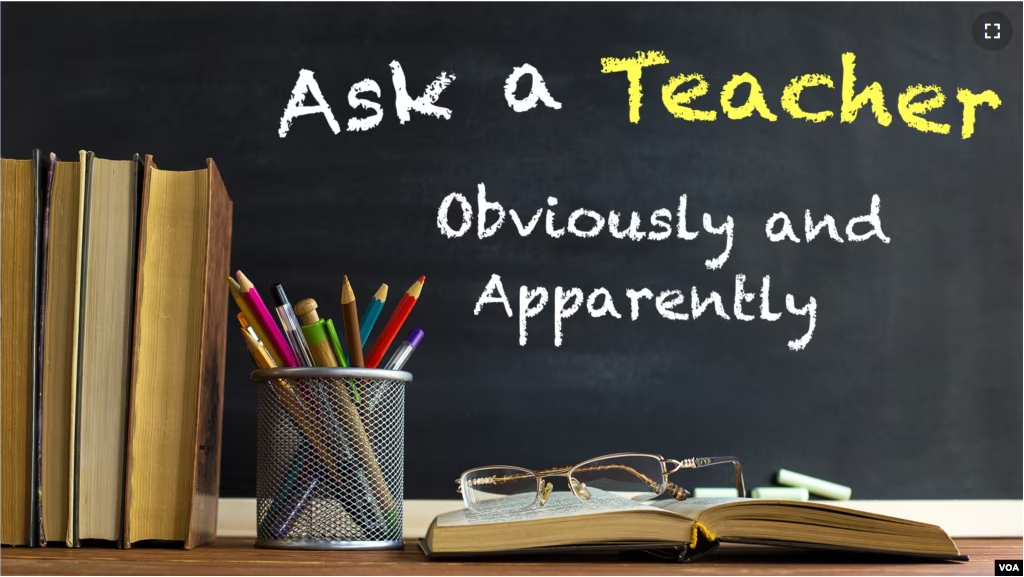Hello! This week on Ask a Teacher, we answer a question from Martha about the usage of two adverbs commonly used in spoken English.
Question
Dear Teacher,
I’m wondering if you could help me [explain] the difference between “obviously” and “apparently.”
Thank you,
Martha
Answer
Thank you for writing to us, Martha. I’m happy to answer this question.
Let’s look at the adjective form of these words first.
If something is “obvious,” that means it is easy to see or understand. For example, it is obvious that an elephant is bigger and heavier than a dog. But some things are only obvious if you have enough experience or knowledge. For example, if a car needs fixing, it may be obvious to a skilled worker what repairs are needed. But the repairs might not be obvious to a person who lacks experience with cars.
The adjective “apparent” also describes something that is easy to see or understand. But we probably use the word “apparent” less often than the word “obvious.” “Apparent” can sound a little more formal than “obvious” in some situations.
Both “obvious” and “apparent” can be followed by the preposition “to” plus an object pronoun, as in the following examples:
It’s obvious to me that he is unhappy.
It was apparent to him that no one in the office had the right skills for the job.
Next, let’s look at the adverbial forms: “obviously” and “apparently.”
Unlike the adjective forms, these two words differ in terms of how easily we can understand or know something.
When we use the word “apparently,” we are expressing the idea that we think we know something is true. However, this idea is usually based on information we have heard or read rather than our own direct experience.
For example, if you say, “Apparently, he’s not a very good teacher,” that means you have heard reports that the person is not a good teacher. At the same time, you do not know for sure if it is true. That is because you do not have direct experience yourself with the teacher.
On the other hand, if you say, “He’s obviously not a very good teacher,” that means you have—or think you have—enough information to be sure that you are correct. It also means you think others should easily understand or agree with what you are saying.
We can use “obviously” or “apparently” as the first word in a sentence, followed by a comma, as in these examples:
Obviously, we need to practice more if we want to improve.
Apparently, it’s hard to find a good restaurant in that area.
We can also place these adverbs next to the verb:
She apparently needs a lot of help.
He obviously feels very strongly about this issue.
For our readers and listeners, what are your questions about American English? We’d like to hear from you. Send us an email at learningenglish@voanews.com. And please include where you are from in your email, too.
And that’s Ask a Teacher.
I’m Andrew Smith.
Andrew Smith wrote this lesson for VOA Learning English.
______________________________________________
Words in This Story
formal – adj. following or agreeing with established form, custom, or rule
